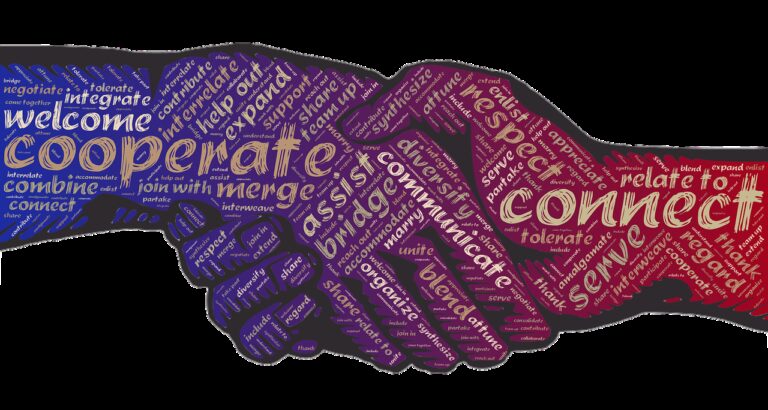Introduction
Ah, confidence – that elusive quality that seems to make people magnetic and irresistibly attractive. But what is it about confidence that holds such power over our perceptions and interactions?
In both our personal and professional lives, confidence plays a pivotal role in shaping our success. It serves as the driving force behind our actions, the fuel that propels us forward even in the face of challenges.
Explanation of the importance of confidence in personal and professional success
Imagine a scenario where you walk into a job interview exuding self-assurance, speaking articulately about your skills and experiences with unwavering conviction. Now picture another scenario where doubt creeps in, your words falter, and your posture slumps.
In which scenario are you more likely to leave a lasting impression? Confidence is not just a nice-to-have trait; it is often the deciding factor between success and missed opportunities.
In personal relationships, confidence acts as a beacon, drawing others towards you like moths to a flame. It signals to those around you that you are secure in yourself, capable of handling whatever life throws your way.
This sense of assurance is infectious, creating an atmosphere of trust and admiration. Whether it’s making new friends or finding romantic partners, confidence sets the stage for meaningful connections.
Overview of how confidence can enhance attractiveness
Have you ever noticed how someone who carries themselves with poise and self-assurance instantly becomes more appealing? Confidence has this magical ability to elevate one’s attractiveness beyond mere physical appearance.
It radiates from within, casting a glow that captivates those around you. When you feel confident in your own skin, it shows in how you interact with others – the way you hold yourself tall, meet people’s gaze unflinchingly, and speak with conviction.
Moreover, confidence breeds charisma – that intangible charm that draws people towards you like a magnet. It imbues your words with weight and authority, making others sit up and take notice.
People are naturally drawn to individuals who exude confidence because it signals strength, competence, and authenticity. In a world full of uncertainties and insecurities, someone who embodies unwavering self-assuredness stands out like a beacon of hope.
The Science Behind Attraction and Confidence
Psychological Studies on Confidence and Attractiveness
Have you ever wondered why confident people tend to attract others like bees to honey? Well, it turns out there’s some solid science backing up this phenomenon.
Psychological studies have shown time and again that confidence plays a crucial role in how attractive we perceive someone to be. Research suggests that individuals who exude self-assurance are often viewed as more charismatic, trustworthy, and overall appealing.
This connection between confidence and attractiveness goes beyond mere surface-level judgments; it delves deep into the subconscious workings of our minds. One fascinating study conducted at the University of California found that participants consistently rated individuals displaying confident body language as more attractive than those exhibiting timid or hesitant behaviors.
From strong posture to direct eye contact, these non-verbal cues of confidence seemed to captivate observers effortlessly. In essence, our brains seem hardwired to equate confidence with desirability, making it a pivotal factor in forming initial impressions and forging connections with others.
Evolutionary Theories on the Appeal of Confidence
Delving into the depths of evolutionary psychology unveils another layer of understanding behind why confidence reigns supreme in the realm of attractiveness. Evolutionary theorists propose that throughout human history, traits associated with confidence—such as assertiveness, leadership qualities, and risk-taking behavior—were vital for survival and reproductive success. Individuals who displayed these traits were perceived as more capable protectors or providers for their offspring and mates.
As a result, natural selection favored those with a healthy dose of self-assurance, perpetuating the link between confidence and attraction across generations. Furthermore, evolutionary psychologists argue that confidence signals genetic fitness and resilience in potential partners.
From an evolutionary standpoint, choosing a confident mate may have offered better chances of offspring survival due to inherited attributes like increased social status or resource acquisition skills. In essence, our predisposition towards gravitating towards confident individuals may stem from an innate desire to secure advantageous genetic traits for future generations—a fascinating insight into the intricate dance between biology and attraction.
Body Language Cues of Confident Individuals
Confidence is often reflected in a person’s body language, sending subtle yet powerful signals to those around them. One key indicator of confidence is posture – standing tall with shoulders back portrays a sense of self-assuredness and presence. Confident individuals tend to take up space, using expansive gestures and open body positioning to show they are comfortable in their own skin.
Additionally, maintaining strong eye contact is crucial in displaying confidence. Looking others in the eye conveys trustworthiness and assertiveness, signaling that you are not afraid to engage directly with others.
Communication Styles that Exude Self-Assurance
Assertiveness is a hallmark trait of confident individuals when it comes to communication. They express their thoughts and opinions clearly and directly without being overly aggressive or passive.
Assertive communicators know how to advocate for themselves while also respecting the viewpoints of others, striking a balance between being firm and considerate. Moreover, clarity in speech is another key aspect of exuding self-assurance.
Confident individuals articulate their ideas concisely and with conviction, avoiding wavering or uncertain language that can undermine their message. Confidence also manifests through non-verbal communication cues during interactions.
Speaking at a moderate pace with a steady tone indicates confidence and composure, whereas rushed or hesitant speech can suggest insecurity. Additionally, using mirroring techniques such as nodding or leaning forward slightly can establish rapport with others and convey attentiveness during conversations.
Building Confidence: Practical Tips and Strategies
Setting Achievable Goals to Boost Self-Esteem Gradually
Setting achievable goals is a fundamental step in building confidence. When you set realistic and attainable objectives, you give yourself the opportunity to experience success and progress.
Start by breaking down your larger goals into smaller, manageable tasks. Celebrate each accomplishment, no matter how small, as it contributes to boosting your self-esteem.
For example, if you want to improve your public speaking skills, start by setting a goal to speak up in one meeting per week. As you achieve these mini-milestones, you’ll gradually build confidence in your abilities.
Embracing Failure as a Learning Opportunity Rather Than a Setback
Failure is an inevitable part of life, but how you perceive it can significantly impact your confidence levels. Instead of viewing failure as a reflection of your worth or competence, see it as a valuable learning opportunity. Every setback provides insights that can help you grow and improve.
Embracing failure with a growth mindset allows you to bounce back stronger and more resilient. Remember that even the most successful individuals have faced failures along their journey to success.
Practicing Positive Self-Talk and Affirmations to Reframe Negative Beliefs
The way you talk to yourself has a profound effect on your confidence level. Replace self-critical thoughts with positive affirmations that reinforce your worth and abilities.
Start each day by looking in the mirror and affirming yourself with statements like “I am capable,” “I am deserving of success,” or “I believe in myself.” Consistent practice of positive self-talk helps rewire your brain towards more empowering beliefs about yourself. Over time, these affirmations become ingrained in your subconscious mind, boosting your self-confidence from within.
Conquering Imposter Syndrome and Comparison Traps
Do you ever feel like you’re a fraud, just waiting to be exposed? That’s the classic hallmark of imposter syndrome – a sneaky little voice in your head that undermines your accomplishments and makes you doubt your abilities.
It’s like wearing a mask of confidence while feeling like an imposter on the inside. The first step to overcoming imposter syndrome is recognizing it for what it is – a trick of the mind.
Remember, everyone experiences self-doubt at some point, and it doesn’t diminish your worth or achievements. Comparison traps are another hurdle on the path to confidence.
In today’s hyper-connected world, it’s all too easy to compare ourselves to others, especially through the curated highlight reels of social media. But here’s the kicker – comparison is the thief of joy.
Instead of getting caught up in comparing yourself to others, focus on your own progress and growth. Celebrate your unique journey and accomplishments, no matter how small they may seem in comparison.
Embracing Exposure Therapy for Fear of Rejection
Fear of rejection or criticism can hold us back from taking risks and putting ourselves out there. It’s natural to want acceptance and approval from others, but letting fear dictate our actions only limits our potential for growth. Exposure therapy is a powerful technique used to confront fears gradually and desensitize ourselves to them over time.
Start by setting small challenges that push you slightly out of your comfort zone, whether it’s speaking up in meetings or reaching out to new people. Remember, rejection is not a reflection of your worth as a person; it’s simply a part of life that everyone experiences at some point.
By exposing yourself to situations where rejection is possible, you build resilience and learn that setbacks are not permanent roadblocks but stepping stones toward personal development. Embrace vulnerability as a strength rather than a weakness – it takes courage to put yourself out there despite the fear of rejection.
Tackling imposter syndrome, comparison traps, and fear of rejection are essential steps in building genuine confidence. These obstacles may seem daunting at first glance but with patience, self-compassion, and consistent effort, you can overcome them one step at a time.
Remember that confidence is not about being fearless but about facing your fears head-on with determination and resilience. So go forth bravely into the world knowing that true confidence comes from within – rooted in self-acceptance and growth mindset.
A Vision of Confidence
As we conclude our exploration into the captivating realm of confidence, it becomes abundantly clear why this quality reigns supreme in the realm of attractiveness. Confidence is like a magnetic force that draws others towards you, creating an aura of assurance and self-assurance that is undeniably appealing. When you exude confidence, you not only attract admiration and respect from others but also emanate a sense of inner strength and conviction that is truly inspiring.
The Allure of Self-Assurance
Throughout this article, we’ve delved into the myriad reasons why confidence holds such sway over our perceptions of attraction. From the way confident individuals carry themselves with poise and grace to how they communicate with clarity and conviction, every aspect exudes an irresistible charm.
Confidence is not just about outer appearances but also reflects a deep sense of self-belief and resilience that can weather any storm. It’s this unwavering self-assurance that makes confident people so alluring.
Cultivating Your Inner Confidence
As we bid adieu, remember that confidence is not a fixed trait but rather a skill that can be nurtured and cultivated over time. Embrace your uniqueness, celebrate your strengths, and learn from your challenges to foster a strong sense of self-assurance.
By setting realistic goals, practicing positive affirmations, and stepping out of your comfort zone, you can embark on a journey towards greater confidence and personal growth. So go forth with courage in your heart and belief in yourself – for true attractiveness lies in the glow of inner confidence.






